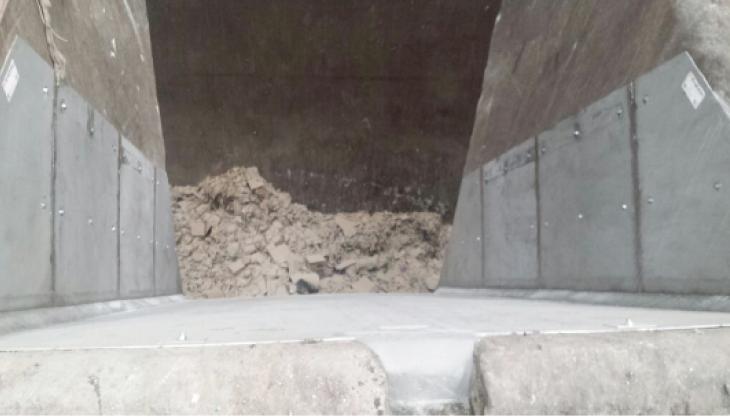Kingfisher keep material flowing at ERF plant

With such strict measures in place to reduce the amount of waste going out to landfill sites, disposing of rubbish in a more environmentally friendly manner has never been so important. With each household waste measuring at one tonne per year, converting such large amounts of waste into re-usable raw material or alternative fuels is a challenge for both MRF and ERF plants throughout the UK.
Meeting demand and ensuring an ongoing functional process are all important aims to meet within the recycling industry. Site maintenance teams are under immense pressure to ensure adequate health, safety and environmental aspects are met but most of all ensuring plants are receiving and processing correct levels of material and remaining within stringent emission levels.
Energy Recovery Facilities (ERF) have similar activity to incinerators introduced back in the 1970s, however today’s systems include the latest technologies and are designed to help maximize the efficient generation of heat. A typical process begins with waste brought in by trucks which is then dumped into waste disposal chutes, these chutes are expected to hold excessive loads of contaminated waste, and can include a mixture of material such as glass, metals, sharp-edged fragments and even food.
Referring to a particular plant in Sheffield, maintenance engineers were approached by Kingfisher’s technical sales engineer. As part of Kingfisher’s service provision, a free on-site visit and consultation was provided to the customer, during which it was apparent as the waste is brought into the tipping hall and dumped into the waste pit, adequate amounts of material failed to flow down the concrete waste chute which further connected into the refuse pit.
Due to the large amounts and different characteristics of waste being handled, significant damage was being made to the concrete surfaces. This dramatically decreased the life of the existing equipment causing it to decay, leaving a rough, uneven and degraded slope, causing waste to build up at the entrance. Material was having to be manually pushed into the pit to allow for a continuous waste flow, so it could be extracted out by a grab and further processed into the incinerator.
Kingfisher are known to have supplied many solutions for the recycling and renewal energy markets. Waste material running through any process plant and equipment can leave transfer points prone to wear and abrasion and restricts key material to flow, causing build up and blockages or surfaces to degrade.
Kingfisher recommended placing a new chute on top of the existing concrete chute which would not only promote the flow of waste, but would work as a defensive layer to combat the varied characteristics of waste being handled. Engineers at the plant were presented with a number of solutions, however the best and most cost-effective system recommended was Kingfisher's K-FLOW Ferritic system.
The overall project awarded to Kingfisher was to manufacture two new waste chutes manufactured from Kingfisher’s K-FLOW material at 8mm thick. K-FLOW is specifically suited to applications that require protection from sliding induced abrasion and a key requirement to promote the flow of bulk solids.
Project manager Peter Philips commented: ‘Investing in such a system will be a cost-effective solution for the plant and maintenance team going forward, if any repairs are required in the future the plant will experience minimal disruption to the ‘downtime’ as it will be an easy one liner replacement of the existing K-Flow lining system, which can be carried out in a day, allowing the chute to be brought back online with minimal disruption and additional costs to the client, access and labour.’
John Connolly, Kingfisher’s managing director, said: ‘There are many applications within EFW plants which require protection against harsh bulk solid, Kingfisher have worked with many OEMs, EPC and end users supplying the renewable market, therefore we have the knowledge, solutions and expertize to provide systems fit for the purpose.’

